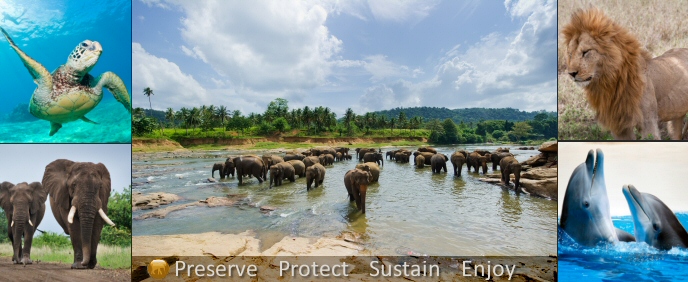
Eco Tours in the Mediterranean - Sustainable Tourism & Conservation Laws
The Mediterranean is a unique part of the world with very distinctive ecological zones. It is among the most popular destinations in the world for beachfront tourism, and is renowned for its landscape and cultural heritage. Tourism to this part of the world is very well-developed, and is one of the largest factors in the economies of the various countries that call this area home. The tourist industry is broken into a few distinct types of tourism: cultural tourism, Ecotourism, and heritage-based tourism. While the cultural and heritage tourism bases are there to experience the buildings and experience the culture, Ecotourists go to visit the coastal areas and thriving permaculture farms.
Ecotourists come from around the world to utilize the exceptionally biodiverse waterways of the Mediterranean. As a result of this biodiversity, fishing and diving are very popular pastimes here on both the north and south sides of the sea. In order to protect the sea from undue stress caused by heavy industry and tourism, the nations surrounding the Mediterranean have come together to create the Barcelona Convention. The convention sets down a conservation framework for the sea, creating guidelines with regard to the disposal of waste and promotion of biodiversity that all signatories must adhere to. While there are a number of laws that have come out of this convention, there are issues currently in regard to the enforcement of those laws. While most countries that ratified the terms of the convention have taken large steps toward realizing its goals, some countries have notably lagged behind. This has created an issue with enforcement, which remains a large point of contention in the region.
The Mediterranean is a very popular region for tourism for a reason. Europeans are especially prone to go on holiday in a Mediterranean country, however the region has worldwide popularity. It has one of the most unique geological profiles of any region in the world, due mostly to its violent and volcanic past. This past has also given it some of the most fertile soils in the world, making it a hotbed for agricultural tourism. It is also one of the most biodiverse marine areas in the world, creating a lot of opportunities for water-based tourism.
While there are a number of environmental laws in place around the Mediterranean, there are still issues with regard to the enforcement of these laws. This has less of an effect here than it does at other bodies of water, since the currents of the Mediterranean are unique as well. This unique current helps to keep contaminants closer to their point of origin, making it less likely that pollution will affect too many outlying countries. Tourists here will find a thriving sea-faring industry, and many opportunities to enjoy the fruits of what the sea has to offer.

